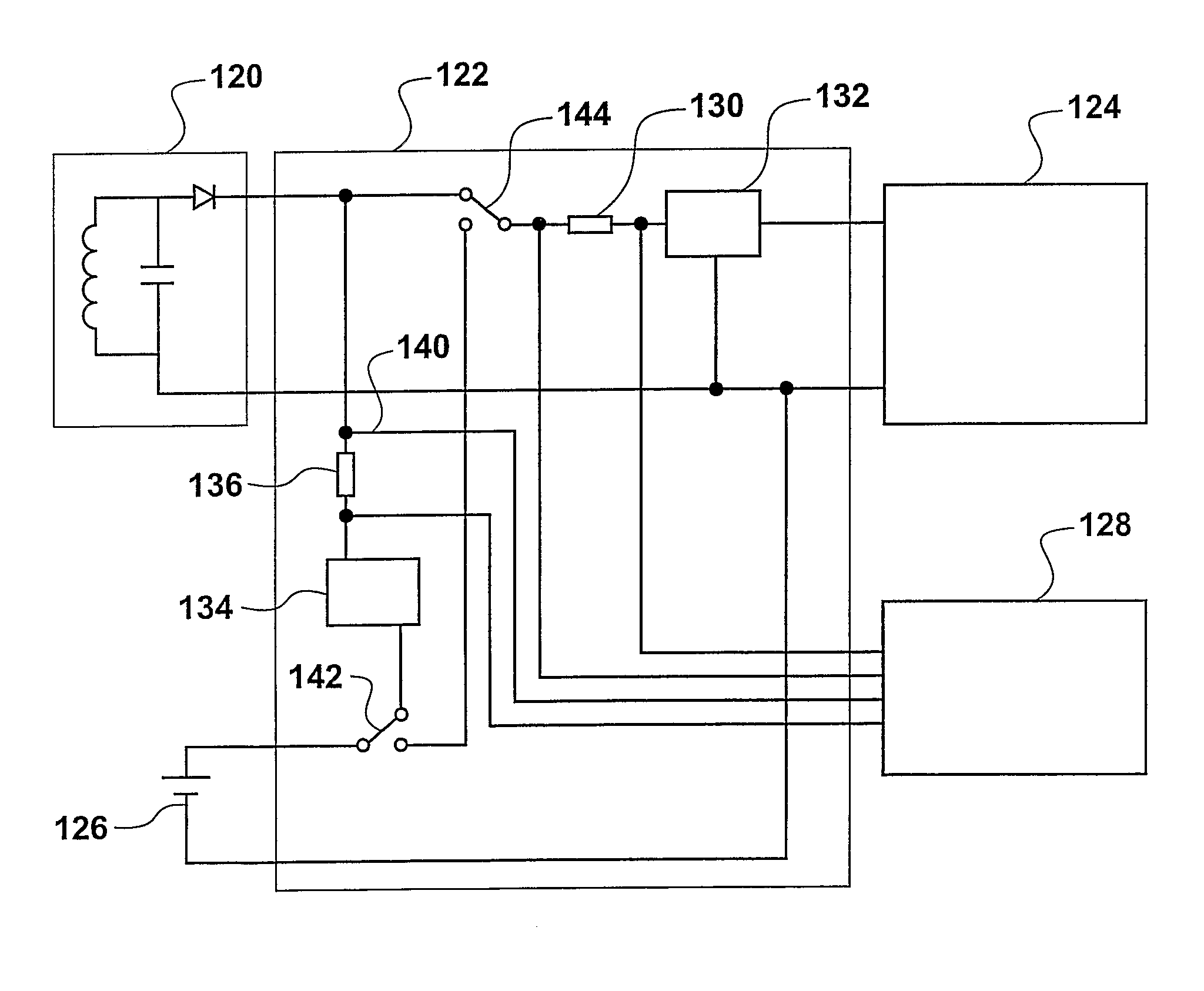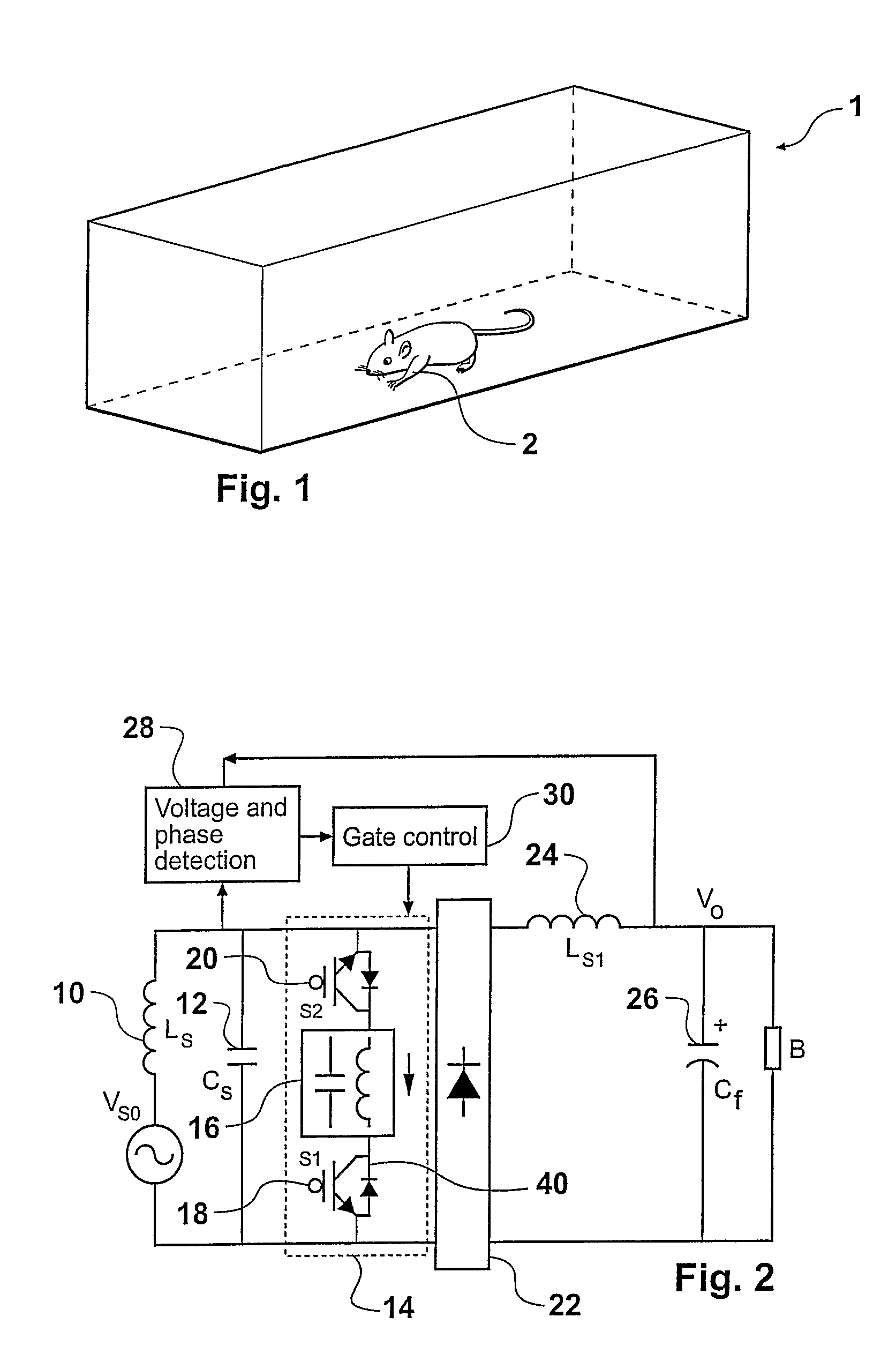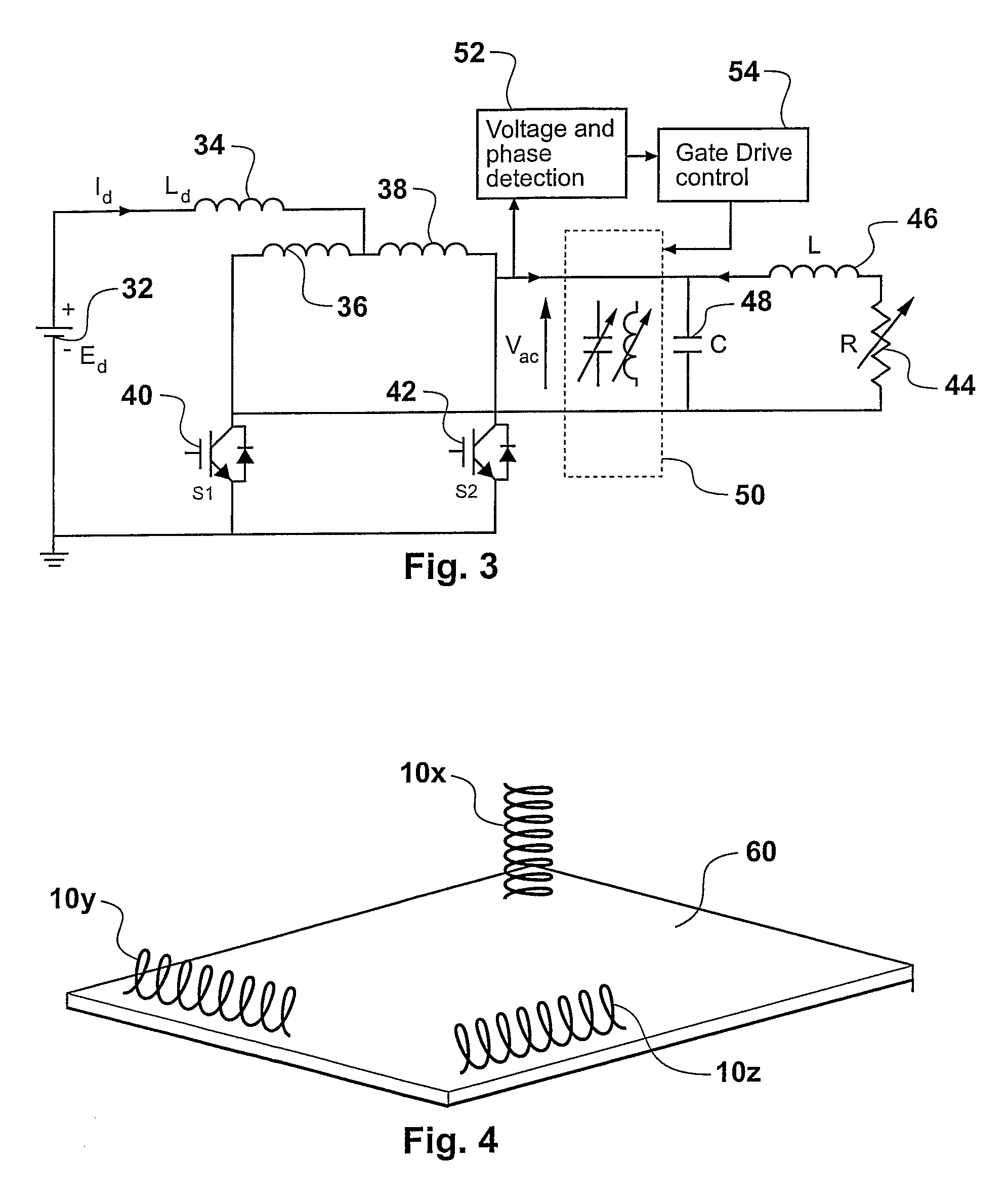Inductively powered mobile sensor system
a mobile sensor and inductive supply technology, applied in the field of inductive supply of power to mobile sensors, can solve the problems of potential source of infection, introduction of movement artefacts, and method has a number of undesirable limitations
- Summary
- Abstract
- Description
- Claims
- Application Information
AI Technical Summary
Benefits of technology
Problems solved by technology
Method used
Image
Examples
Embodiment Construction
[0093]Referring to FIG. 1, an enclosure in the form of an animal cage is shown generally referenced 1 containing an animal such as a mouse 2. Although the invention will be described with reference to a cage suitable for containing a small animal such as a mouse, those skilled in the art will appreciate that the invention is generally applicable to the wireless supply of power to a very wide range of animals (including humans or other living creatures) within a defined space. Furthermore, although the invention is described below in relation to biosensors, those skilled in the art will realise that the invention is applicable to other sensors.
[0094]An electromagnetic field may be established in the space defined by the enclosure by providing an alternating current in a primary conductor adjacent to the cage 1. Electrical energy may be transferred from the field to a tuned inductive pick-up circuit implanted in the animal 2. The pick-up circuit can thus provide the power supply requi...
PUM
 Login to View More
Login to View More Abstract
Description
Claims
Application Information
 Login to View More
Login to View More - R&D
- Intellectual Property
- Life Sciences
- Materials
- Tech Scout
- Unparalleled Data Quality
- Higher Quality Content
- 60% Fewer Hallucinations
Browse by: Latest US Patents, China's latest patents, Technical Efficacy Thesaurus, Application Domain, Technology Topic, Popular Technical Reports.
© 2025 PatSnap. All rights reserved.Legal|Privacy policy|Modern Slavery Act Transparency Statement|Sitemap|About US| Contact US: help@patsnap.com



